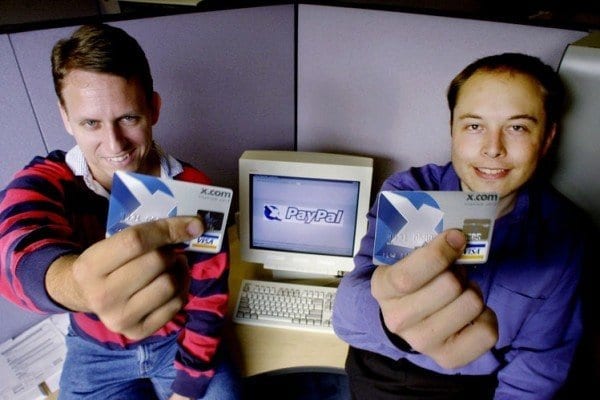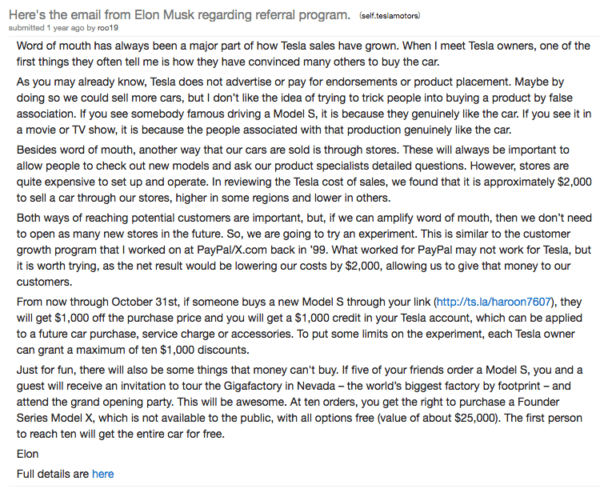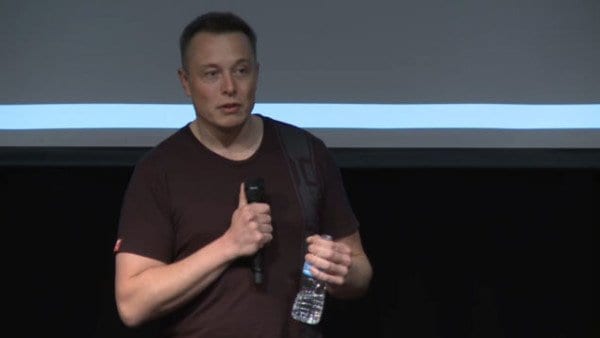
Tesla discontinued its referral program in February 2019 as the company had well and truly established itself as a household name. However, due to popular demand, the company has announced the reintroduction of their very widely successful referral program with all-new incentives.
According to USA Today, “Tesla CEO Elon Musk described the incentives as an effort to ascertain whether the company can rely on social marketing tactics more heavily and open fewer retail locations.”
Why?
Well, since the company’s launch, they pledged to run on a $0 marketing budget. No advertising, no ad agency, no chief marketing officer, and no dealer network.
Sounds a bit crazy, right?
Evidently not. The company has since boomed, worth an estimated $208 billion USD and returning a reported $24.6 billion revenue in 2019.
So how did they reach these insurmountable heights while spending basically nothing on marketing?
With the help of their previous and newly revamped referral program, of course.
Let’s take a look at why the program has been so successful and how it helped Tesla reach the notoriety they have today.
It granted a sizeable referral reward AND friend offer of $1,000 credit:
"Musk said on a conference call that the company would offer a $1,000 credit to Tesla owners whose referrals result in the purchase of a Model S electric sedan. The friend making the purchase also gets $1,000 off the price tag."
"To be sure, it's a modest incentive. Tesla cars range in price from about $70,000 to more than $100,000." – Elon Musk, Tesla Motors CEO
But that's the beauty of referrals and in a similar fashion, affiliate programs. It's not so much about making a huge dent in the price, as it is being able to give your friends $1,000 off.
It's a nice gesture, way nicer than buying them coffee or dinner.
And there are additional status incentives, too:
"In addition, those who make five referrals will receive an invitation for them and a guest to attend the Gigafactory grand opening party." How do you incentivize people who are probably well-off and don't really need the money? Exclusive invites to prestigious events.
The new Telsa referral program rewards both the referrer and the referred friend 1,500 kilometers of free Supercharging with the purchase of a new Model S, Model X, or Model 3 car.
Orders of the Model Y or Cypertruck are, unfortunately, ineligible for the program. However, each car referral also gives participants the chance to win a Model Y monthly or a Roadster supercar quarterly.

Not many people know this, but Elon Musk actually was the one at PayPal who suggested using cash bonuses to incentivize customer referrals.
As soon as PayPal saw that so-called early adopters were using the system by the thousands to pay for purchases on EBay, Musk developed a "viral marketing campaign," PayPal COO David Sacks said: The firm paid $10 to every new PayPal customer as well as anyone who referred a new user to the system. The campaign fuelled exponential growth.
Later on, Dropbox would take inspiration from PayPal to do its own referral program, and many other referral programs since have learned from their examples.
So the only surprise here is that Tesla Motors didn't implement a customer referral program sooner.
Tesla fans geeked out about the referral email over at the /r/tesla subreddit:

Tesla is one of the few businesses that can legitimately call itself 'cutting-edge', with its Gigafactories and Powerwalls and other innovations.
People who buy Teslas aren't just buying a better car, they're buying status as 'early adopters', they're buying into a movement.
These are all things that influence referrals.
I know a lot of very wealthy people. Most of them made their money in technology. I don’t think Bentley or Rolls-Royce is anywhere near the top of very many of these people’s idea of an impressive car. A Tesla is more like it. – Jimmy Wales, on Quora
If you look at the Tesla forums, you'll see comments like "I'm going to be rich!" and "If I refer myself 10 times, do I get a new one?".
While comical, they reveal the intensity of Tesla evangelists and do suggest that the referral program is going to be really successful.

At Tesla's 2013 Shareholder's meeting, CEO Elon Musk got choked up talking about his conviction that the system of dealerships in the USA today is counter-productive, restricting entrepreneurs and giving consumers less choice.
You can tell from the audience's rousing response– the shareholders aren't just there to make money, they're big fans of the product and the founder and they want to feel like they're a part of the future.
"Customers who are not sales people can refer their friends. There's no rule against that, so it is kind of a guerrilla tactic against car dealers in certain states."
"One benefit of online sales generated by social referrals is that it could improve sales to consumers in states where Tesla cannot legally operate stores due to dealer franchise laws."
A quick search on Twitter already shows some prominent folks sharing referral links, such as biologist Richard Dawkins and Threadless founder Jake Nickell:
I must admit that I'm personally really excited to witness Tesla Motors grow in scale and influence– and it's really cool to see referral marketing play a role in all of this.
The best thing for you to do? If you want to launch your own referral program, you can take a look at our affordable referral pricing plans.
Hey! Before you shoot off, check out Tesla’s “$0 Marketing Budget” marketing strategies here.
Relevant links:
Visa is ReferralCandy's former Blog Editor [2013–2018]. He also co-founded Statement.sg, a fashion ecommerce label selling witty t-shirts. He's mildly Internet-famous for his elaborate Twitter threads. He hopes to enjoy a glass of scotch onboard a commercial space flight someday.
Grow your sales at a ridiculously
lower CAC.